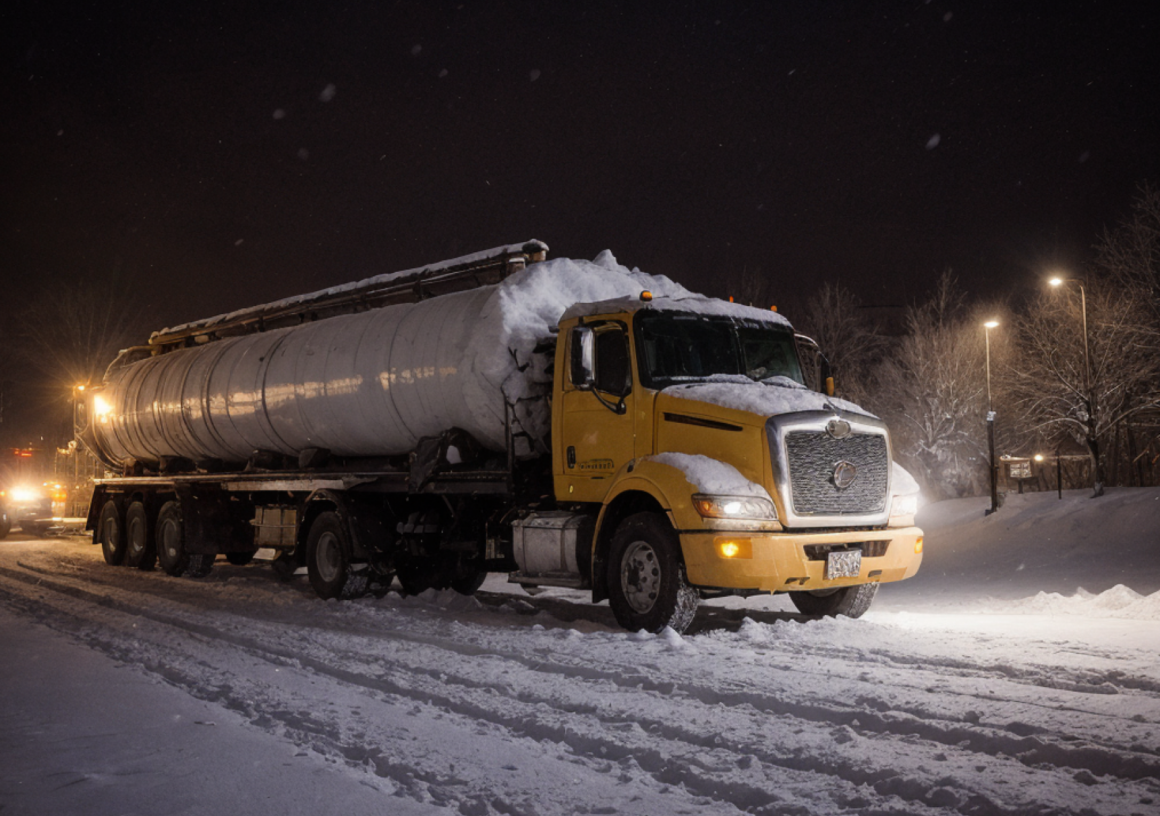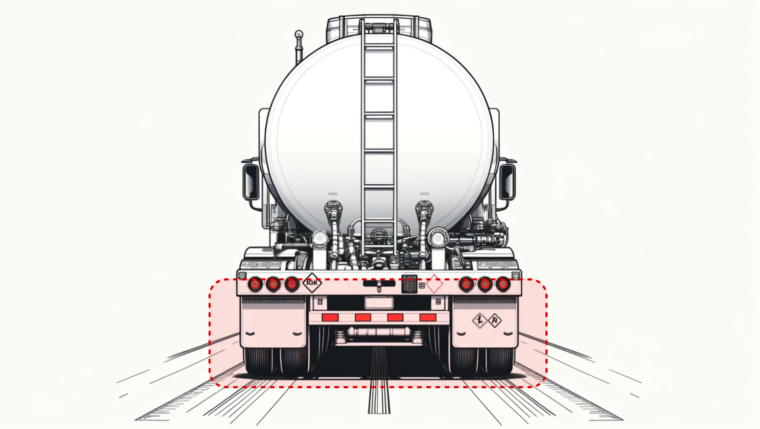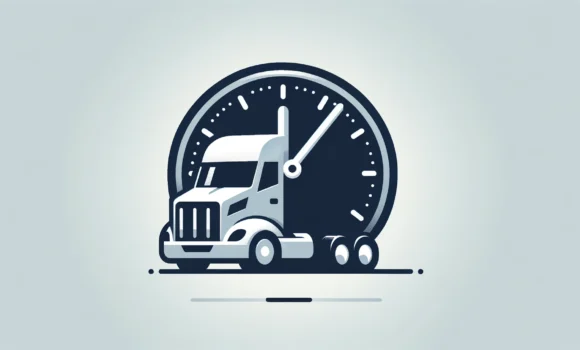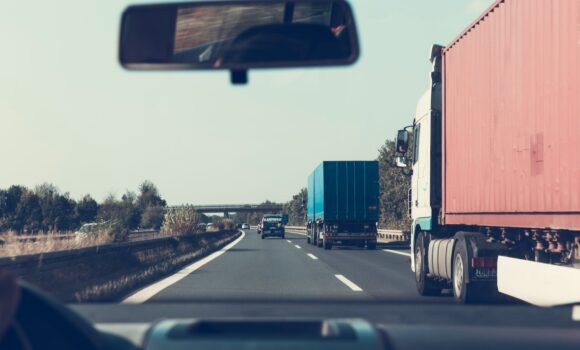Shocking Truths Behind Tanker Truck Disasters
Diving into the scary truths of tanker truck mishaps, we uncover why getting the right legal help is crucial for those caught in the chaos.

In the complex world of modern logistics and supply chains, tanker trucks play a critical role in transportation but also present dangers on our highways.
These vehicles, often seen as mere blips in the daily commute, are in fact critical cogs in the machinery of commerce, transporting essential liquids ranging from gasoline and chemicals to milk and water. Their importance cannot be understated, as they ensure the steady flow of goods necessary for industries and daily life alike. Yet, beneath the surface of this invaluable service lies a latent danger, a risk magnified by the very nature of their cargo.
Tanker truck accidents carry disproportionately severe consequences. The mere thought of a collision involving a vehicle laden with flammable or toxic substances is enough to evoke concern, but the reality is even more dire. Such incidents not only pose immediate threats to life and property but can also have lasting environmental impacts, turning a momentary accident into a prolonged disaster.
Understanding the Risks
The vital role of tanker trucks in transporting liquids across vast distances is a double-edged sword. While they facilitate the movement of essential goods, they also introduce significant risks to public safety.

The Underride Hazard
The unique structural design of a tanker truck, particularly concerning its rear bumper, introduces a significant risk factor in the event of a rear-end collision. Unlike conventional vehicles, the rear bumper of a tanker truck is often positioned higher off the ground, aligning more closely with the driver’s head level in many passenger vehicles. This alignment can have dire consequences in accidents. When a car rear-ends a tanker truck, the car’s crumple zones, designed to absorb impact forces and protect occupants, may be bypassed entirely.
Instead of engaging with the bumper of the tanker truck as intended, the lower profile of the car can cause it to slide under the truck, leading to severe, if not fatal, injuries for the occupants. This type of collision, known as an underride accident, is particularly dangerous because the car’s safety features, such as airbags and seatbelts, cannot perform as designed when the impact occurs at window or windshield level. The structural integrity of the passenger compartment can be compromised, directly exposing occupants to the full force of the collision without the benefit of designed deformation zones. This stark mismatch in vehicle design highlights the critical need for vigilance and safety measures, such as maintaining safe distances and speed awareness when driving near tanker trucks on the road.
Increased Stopping Distance
The physics of motion dictates that heavier objects require more time and distance to come to a complete stop compared to lighter ones. Tanker trucks, often laden with thousands of gallons of liquid, are no exception. Their increased stopping distance becomes a critical factor in traffic safety, particularly in situations requiring sudden stops. Highway traffic, with its unpredictable flow and sudden congestion, poses a challenge for tanker truck drivers who must maintain a safe distance from other vehicles to mitigate the risk of rear-end collisions.
Visibility Issues
Visibility issues are a challenge for all large vehicles, but tanker trucks face unique hazards due to their size and the nature of their cargo. Blind spots, or “no-zones,” around these trucks are significantly larger, making it difficult for drivers to see smaller vehicles, cyclists, or pedestrians. These visibility issues are a common factor in accidents involving lane changes, turns, and even some collisions at intersections, where the presence of a smaller vehicle or person might be completely obscured from the truck driver’s view.
Rollovers
Tanker trucks have a higher center of gravity than many other vehicles, which makes them more susceptible to rollovers, especially when navigating curves, making abrupt turns, or correcting drifts. This risk is exacerbated by the liquid cargo, which can shift during movement, altering the vehicle’s stability. Rollovers not only endanger the driver but also pose a significant risk to other road users and can lead to catastrophic spills, especially if the tanker is carrying hazardous materials.
Hazardous Materials
Many tanker trucks are tasked with transporting hazardous materials. These are substances that, due to their chemical properties, pose risks of fire, explosion or environmental damage if released. These materials range from gasoline and diesel fuel, which are highly flammable, to industrial chemicals that can be toxic or corrosive.
Mitigation Measures
Recognizing these risks, various measures have been implemented to mitigate the dangers associated with tanker trucks. These include strict regulations on the transport of hazardous materials, advanced training for drivers, technological aids like blind spot detection systems, and design modifications to improve vehicle stability. However, despite these precautions, accidents still occur, highlighting the need for continuous improvement in safety protocols and technologies.
The Aftermath of Accidents
When accidents involving tanker trucks occur, the aftermath can be devastating and far-reaching. The immediate consequences, such as injuries or fatalities, are often just the beginning. The environmental damage and the economic impact on individuals and communities can linger for years.
Severe Injuries or Fatalities
The sheer size and mass of tanker trucks can lead to severe injuries or fatalities in the event of a collision. Victims may suffer from a range of injuries, including:
- Traumatic brain injuries (TBI): Caused by blows to the head or body, TBIs can result in long-term cognitive issues.
- Burn injuries: In accidents involving flammable cargos, explosions and fires can cause severe burns, requiring extensive medical treatment.
- Spinal cord injuries: These injuries can lead to paralysis and a host of lifelong challenges.
The emotional and psychological toll on victims and their families can be profound, often necessitating long-term therapy and support.
Property Damage
The impact of tanker truck accidents extends to property damage, both immediate and collateral. This includes:
- Infrastructure damage: Explosions or fires can damage roads, bridges, and utilities, leading to costly repairs and disruptions.
- Business interruptions: Local businesses may suffer from reduced access, contamination, or physical damage, impacting their operations and financial health.
Navigating the Aftermath
For victims and affected communities, navigating the aftermath of a tanker truck accident involves a complex web of challenges:
- Medical care and rehabilitation: Securing the necessary medical treatment and rehabilitation services for injury recovery.
- Legal and insurance claims: Dealing with insurance companies and possibly pursuing legal action to seek compensation for damages and losses.
The path to recovery can be long and fraught with obstacles, highlighting the importance of comprehensive support systems and the need for effective legal representation to navigate these challenges.
Following the catastrophic aftermath of tanker truck accidents, the journey towards recovery and justice is both complicated and overwhelming for the victims and their families. This is where personal injury law firms play an indispensable role, stepping in to navigate the maze of legal challenges and insurance claims. Their expertise and advocacy are crucial in securing compensation and facilitating the healing process for those affected.
The Role of Personal Injury Law Firms
Personal injury law firms specialize in representing individuals who have suffered injuries or loss as a result of accidents, including those involving tanker trucks. These firms are not just legal representatives; they are advocates for justice, working tirelessly to ensure that victims receive the compensation they rightfully deserve. Their role encompasses several key functions:
Investigation and Evidence Gathering
At the heart of any personal injury case is the need for thorough investigation and evidence collection. Law firms specializing in big truck accidents often:
- Analyze accident reports and witness statements to construct a factual account of the event.
- Collaborate with accident reconstruction experts to determine the causative factors and liability.
- Gather medical records and consult with medical professionals to fully understand the extent of injuries and the future medical needs of their clients.
This comprehensive approach ensures that all facets of the case are covered, laying a strong foundation for the legal proceedings.
Negotiation with Insurance Companies
Dealing with insurance companies can be a daunting task for victims and their families. Personal injury law firms take on this challenge by:
- Handling all communications with the insurance companies, shielding clients from the stress of negotiations.
- Evaluating settlement offers to ensure they reflect the true cost of injuries, damages, and future needs.
- Advocating for fair compensation, using their legal expertise to counter lowball offers and push for settlements that cover all aspects of the victim’s losses.
Litigation and Representation in Court
While many personal injury cases are settled out of court, some proceed to trial. In these instances, these law firms will:
- Prepare a compelling case, marshaling all the evidence and expert testimonies to support their client’s claim.
- Represent their clients in court, advocating on their behalf and presenting their case to a judge or jury.
- Work tirelessly to achieve a verdict that provides justice and compensation for their clients, ensuring that the responsible parties are held accountable.
With a proven track record of advocating for victims of big truck accidents, Strong Law P.C. possesses the expertise, resources, and dedication needed to confront the entities responsible for your suffering. Our team is not just skilled in the art of negotiation and litigation; we are deeply committed to the cause of justice, ensuring that each client receives personalized attention and unwavering support.
If you or a loved one has been affected by a tanker truck accident, do not face this challenge alone. Let us be your advocate, your support, and your path to justice. We invite you to reach out for a free consultation to discuss your case and explore how we can help you rebuild and recover.
Tell Us About Your Case
Contact us today at (417) 887-4300 or online to arrange your free case evaluation. Our Experienced Trial Attorneys will walk you through your legal options.


